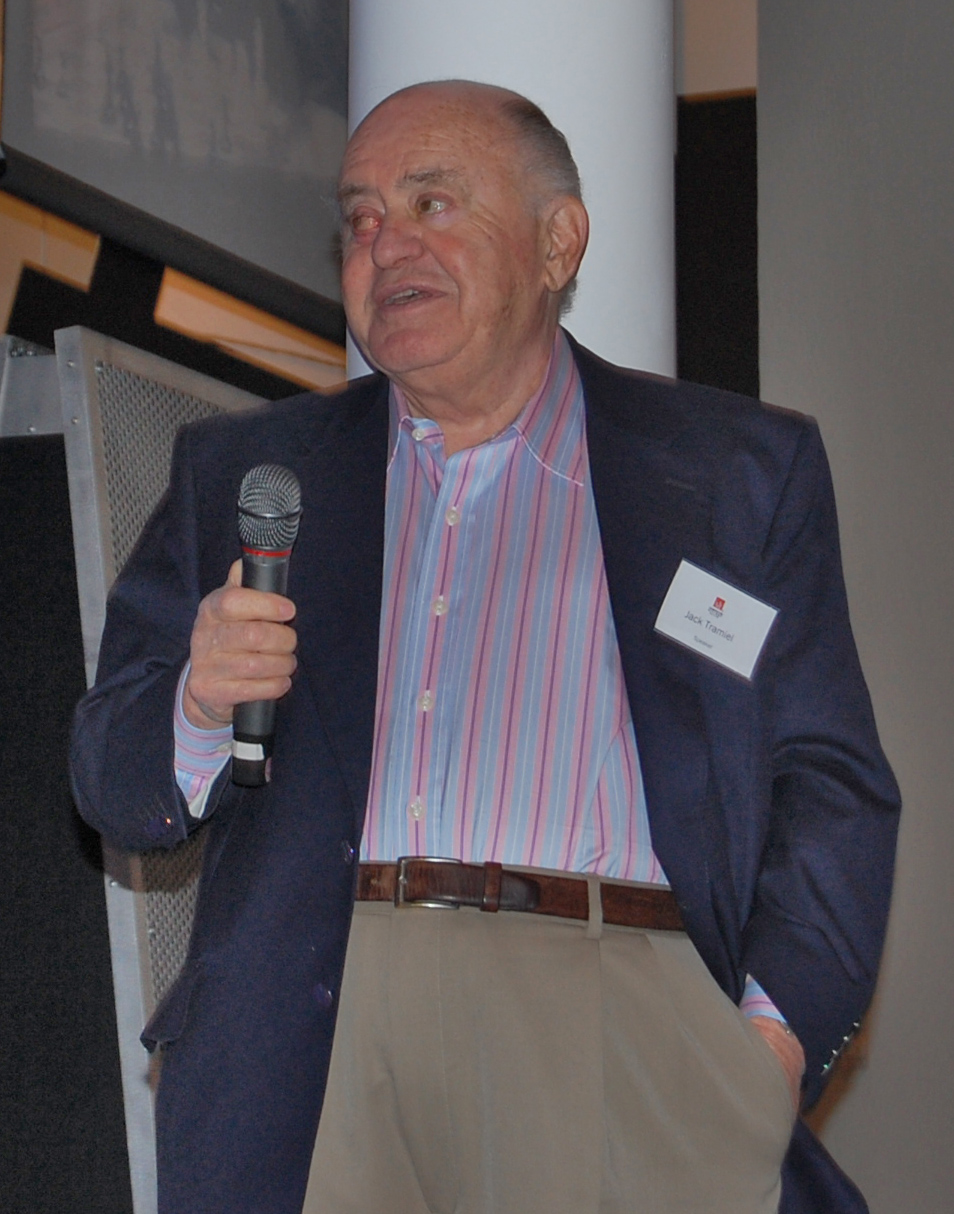Commodore Founder Jack Tramiel Dies at 83
Commodore International founder Jack Tramiel passed away on Sunday at the age of 83.
Jack Tramiel. the man behind the best-selling personal computer of all time, passed away on Sunday, surrounded by his family. He was 83 years old.
Tramiel is widely known as the pioneer behind the Commodore 64 personal computer which launched back in the 1980s. But before founding Commodore International, he bought a repair shop in the Bronx and named it Commodore Portable Typewriter in 1953 while working as a New York City taxi driver. He fixed office machinery until 1955 when he signed a deal with a Czechoslovak company to assemble and sell their typewriters in North America.
Eventually his company moved away from the saturated typewriter market and entered the adding machine sector. That too quickly became saturated, so Commodore jumped into the digital calculator business instead. That didn't pan out for very long either thanks to Texas Instruments, so Commodore thus purchased MOS Technology, Inc., an IC design and semiconductor manufacturer. This purchase led to the monochrome Commodore PET computer followed by the VIC20 and the famous Commodore 64.
Tramiel resigned from Commodore in 1984 and formed Tramel Technology Ltd shortly thereafter to create and sell the next-generation personal computer. But instead of making new PCs, his company purchased the consumer division of Atari Inc from Warner Communications which was heavily wounded by the Video Game Crash of 1983. Tramel Technology thus renamed itself as Atari Corporation.
By the end of the 1980s, Tramiel stepped down from Atari's everyday operations, naming his son as president and CEO. But in 1995 his son suffered a heart attack, requiring Tramiel to return. He then sold the company to disk drive manufacturer Jugi Tandon Storage in a reverse merger deal in 1996. The new company was named JTS Corporation, and Tramiel joined the JTS board.
Tramiel was originally from Poland, born in 1928 to a Jewish family living in the war-torn turmoil of World War II. After the German invasion of Poland in 1939, his family was moved to the Jewish ghetto in Łódź, then to the Auschwitz concentration camp. Eventually he and his father were sent to the labor camp Ahlem near Hanover. Tramiel was rescued in April 1945 by the 84th Infantry Division, but his father didn't make it out of the camp alive thanks to a bout of Typhus (although Tramiel believed the man died from an injection of gasoline).
Two years after his rescue, Tramiel emigrated to the United States in November, 1947. He joined the Army shortly thereafter and learned how to repair office equipment, including typewriters.
Get Tom's Hardware's best news and in-depth reviews, straight to your inbox.
"Jack Tramiel was an immense influence in the consumer electronics and computing industries. A name once uttered in the same vein as Steve Jobs is today, his journey from concentration camp survivor to captain of industry is the stuff of legends,” says writer Martin Goldberg who is working on a book about the Atari brand and the early days of video games and computing.
"His legacy are the generations upon generations of computer scientists, engineers, and gamers who had their first exposure to high technology because of his affordable computers – 'for the masses and not the classes,'" he added, quoting Tramiel's famous phrase from the Commodore 64 era.
Tramiel is survived by his wife Helen, their three sons, Gary, Sam and Leonard, and their extended families.

Kevin Parrish has over a decade of experience as a writer, editor, and product tester. His work focused on computer hardware, networking equipment, smartphones, tablets, gaming consoles, and other internet-connected devices. His work has appeared in Tom's Hardware, Tom's Guide, Maximum PC, Digital Trends, Android Authority, How-To Geek, Lifewire, and others.
-
Silly Boots A legend will be missed.Reply
"Tramiel was originally from Poland, born in 1928 to a Jewish family living in the war-torn turmoil of World War II."
Think you meant World War I. -
moonzy RIP Jack Tramiel.Reply
Well done article, Tom's. Thank you.
Without Pioneers like Jack Tramiel, this world would be a colder place.
-
moonzy silly bootsA legend will be missed."Tramiel was originally from Poland, born in 1928 to a Jewish family living in the war-torn turmoil of World War II."Think you meant World War I.1928 was post WWI.Reply
Why not re-read the article and browse Wikipedia. http://en.wikipedia.org/wiki/WWI
http://en.wikipedia.org/wiki/WWII -
eric_son utengineerRIP I will fire up my C64 in tribute.Reply
I don't have my C64 anymore. I will fire up my CCS64 emulator instead. :(
